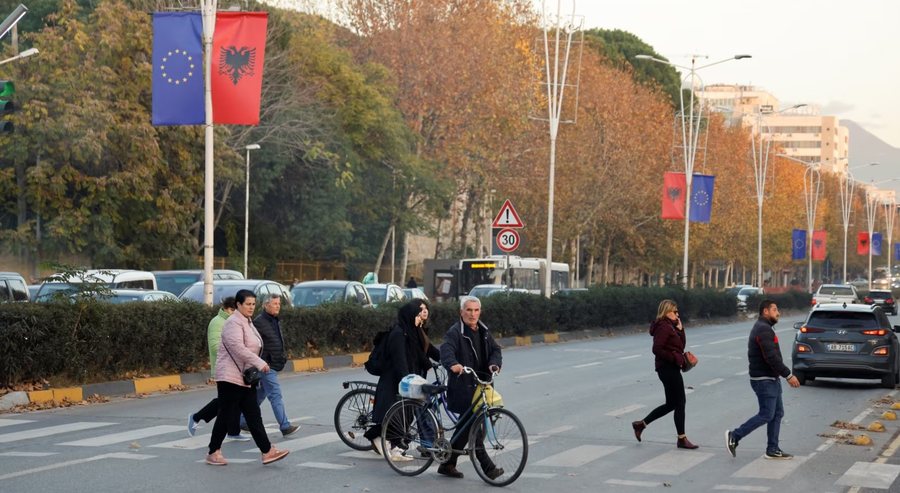
Greece will support Albania in its ten-year bid to join the European Union, but on condition that it respects the rights of the Greek minority in the country, Prime Minister Kyriakos Mitsotakis said on Wednesday, Reuters reports.
Relations between Athens and Tirana soured after Albania arrested minority Greek politician Alfred Beleri while campaigning for local elections in his home town of Himara last year and jailed him for vote-buying.
Beleri was released this year after winning a seat in the European Parliament as a candidate for Mitsotakis's conservative New Democracy party.
Speaking at the signing of a contract for a new road connecting the northwestern Greek city of Ioannina with the Albanian village of Kakavije, Mitsotakis said that Greece has always maintained good relations with its Adriatic neighbor.
But its support for Albania's bid for EU membership depends on speeding up the fulfillment of long-standing obligations related to the property and other rights of Albania's Greek minority, which is the largest in the country.
"There is a continuous path of conditions towards the European Union, where we are essentially the regulators of the speed at which Albania will move towards Europe," Mitsotakis said before traveling to Brussels for the EU-Western Balkans summit.
Albania, along with Bosnia, Kosovo, Montenegro, North Macedonia and Serbia, was promised EU membership years ago and is in talks with the EU on how to speed up the necessary reforms, which will help them eventually become part of the 27-nation bloc.
But the process has stalled, mainly due to slow progress on reforms and also due to the lack of desire from EU member states for further enlargement.
Albania opened the first chapter of membership negotiations with the European Union in October, 15 years after applying for membership.
Meanwhile, on Wednesday, after a meeting with his Serbian counterpart, Marko Djuric, in Athens, Greek Foreign Minister George Gerapetritis said that Greece also supports Serbia's efforts to join the EU.
"Serbia's membership in the European Union is a geopolitical necessity," said Gerapetritis. (A2 Televizion)











